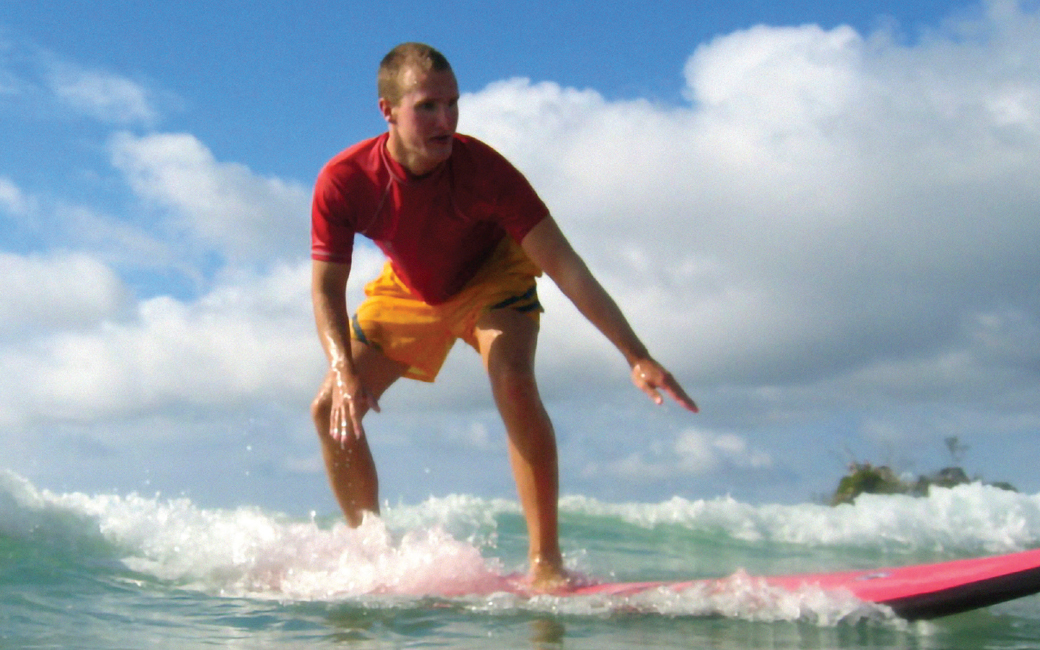The One Trip That Changed My Life
Clark Rachfal ’09
Director of advocacy and governmental affairs, American Council of the Blind and para-cycler

I was first diagnosed as legally blind at age four. As my vision slowly got worse,
by the age of 13 I had to make the tough decision to no longer ride a bike. Leber
congenital amaurosis is a degenerative retinal condition that causes vision to slowly
deteriorate.
As a result, my central vision has been reduced to light and shadows. My peripheral
vision is better, but I can only see colors, shapes, outlines—and no fine detail.
I knew I wanted to study abroad before I even applied to TU. I’d always been fascinated by Australia, and my experience there my junior and senior years of college exceeded my wildest dreams. The first time that I tried surfing was in Byron Bay. I love beaches and the ocean, and what better place to surf for the first time than an iconic Australian beach? By no means have I ever surfed large waves, but I enjoy feeling the surge of the ocean beneath me and striving to find a point of balance and harmony atop the board and on the wave. The hardest part about surfing blind is timing the approach of the wave. Once on a wave, surfing is more about balance and feel than vision, so being blind is irrelevant.
Friends who were raising money for a mission trip to the Solomon Islands asked me if I wanted to do a charity bike ride through New South Wales with them. I told them that if they found a tandem, I would. This turned out to be a great adventure. We endured several long hot and rainy days in parts of Australia that I would not have visited on my own.
It was in Australia that I was introduced to a member of the Australian blind cricket team who first told me about the U.S. Association of Blind Athletes (USABA). When I returned home, I ultimately made the decision to pursue tandem cycling. I do not know when I began to think about the Paralympic Games, but having something to train for provided structure and purpose to my life post-Towson. For years, I worked during the day and trained at night on a stationary bike in my basement. In 2009, my tandem pilot and I qualified for our first World Championship. I have raced for Team USA on three continents and 11 countries—including Australia, where it all began.
Australia allowed me the opportunity to take stock of who I was, and who I wanted to be. Traveling half the world away provided me with a clean break from the coping mechanisms that I had developed. In many instances, even to this day I feel like an extravert trapped in an introvert’s body. In large part, this is due to the isolation and inability to communicate visually with those around me. During my time in Australia, I became more open to new experiences. As a result, my peers were more accepting of who I was. I am thankful for this life-changing experience, and that I had the opportunity to make friends who traveled to stand up on my behalf at my wedding.
